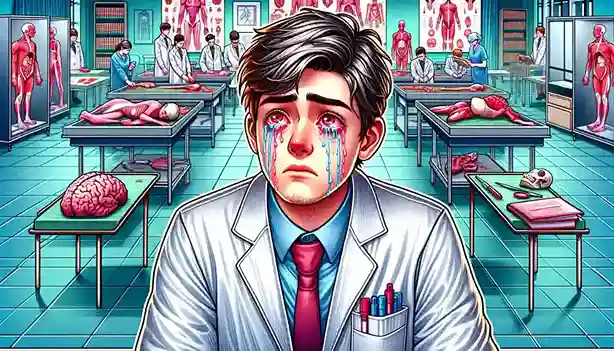Dissection: how to come to terms with it
Hey medicos! Welcome to one of the most daunting but important parts of your medical journey—dissection. The smell of formalin hits you with the first step into the Dissection Hall (DH). The sight of cadavers being taken out of the formalin filled tanks is the second hit. It was a big shock for me, given I am not from a medical background and even the thought of a cadaver was scary to me.
Just thinking that I’m about to cut into human flesh, that I am about to dissect human cadavers. It is a strange feeling. I’m sure you might be feeling the same overwhelming sense of reality too.
As I said, you’re not alone in feeling this way. Almost every medical student goes through this phase of adjustment. Here’s a guide to help you come to terms with dissection and make the most of this once-in-a-lifetime learning process.
Initial Reactions
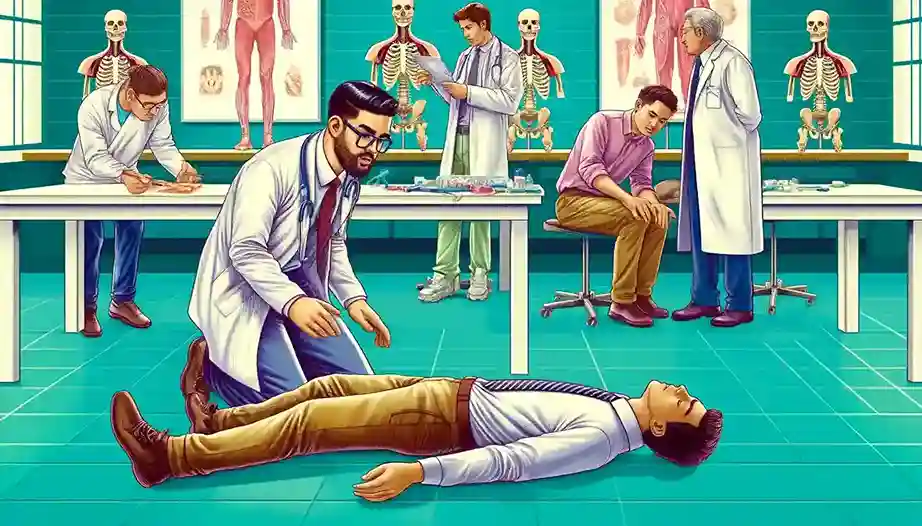
People faint. Most of us experience nausea from the formalin and discomfort at the sight of cadavers. Even in the middle of all the newness, some people will be alright and excited to get started. Their indifference to the process can make you question your ability to cope with medicine. It is very common to feel imposter syndrome in medicine.
All you need to remember is that these feelings will pass with time and exposure.
Gradual Adjustment
If you are scared or disgusted, I would suggest getting into dissection slowly. It is very very natural to feel uneasy. Just try to spend a little more time on the dissection table everyday. Don’t take the easy way out, do not go sit on a stool away from the cadaver and study theory. Some effort each day.
Ask your DT mates to help you
Talk to the enthusiastic people who dissect everyday. Tell them about your feelings of plain fear and fear of messing up. Chances are, they’ve gone through the same thing. They might help you with dissection. They will be supportive, my classmates were supportive too.
Don’t be afraid of messing up. Dissection is a learning process, and it’s okay to make mistakes. Just keep going, you might cut into an artery or a nerve, but keep going.
The reason to include dissection in the curriculum is to make sure that you have had your fair share of mistakes before the real deal. You get to mess up before you acquire the skill.
If You’re Still Struggling
If you find it extremely difficult to perform dissections even after several attempts, try to focus on observing for a while.
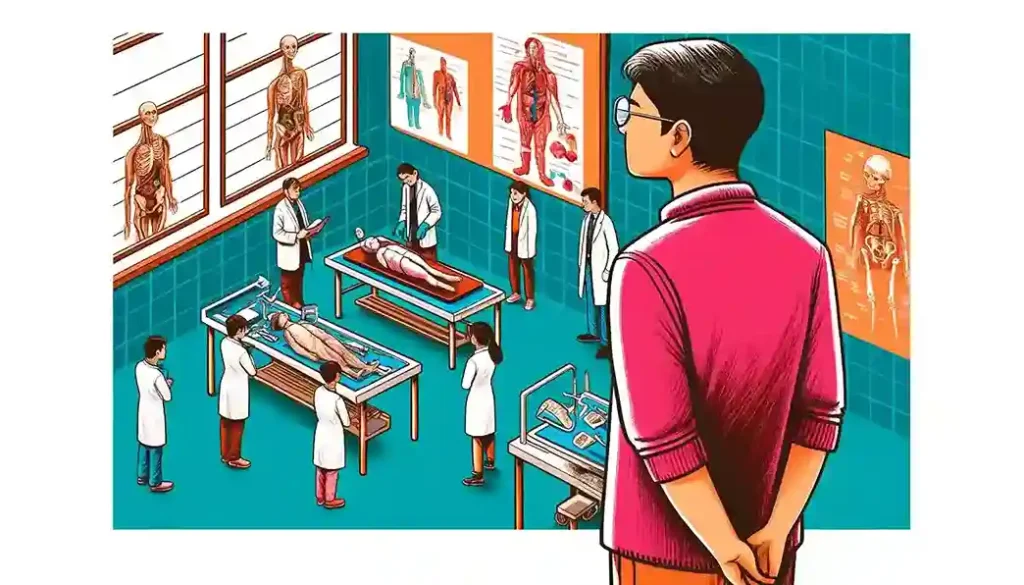
Watching someone else dissect can be very helpful. You can still learn a lot by seeing the structures and understanding how the dissection is performed. It will help you warm up to the process. Just go and stand next to the person who’s dissecting. Ask them questions, ask them to let you into their thought process.
You will also see that almost everybody makes mistakes. This will also help you overcome your fear of making the wrong cut. Observing is much much better than sitting and learning theory.
Respect and Decorum
One thing you should focus on, regardless of your participation in dissection, is ethics. The cadaver used to be a living person, they were somebody’s family, somebody’s child. A donated body deserves all the respect promised. An unclaimed body deserves equal respect to. Your post or your achievements do not allow you to degrade someone else’s existence.
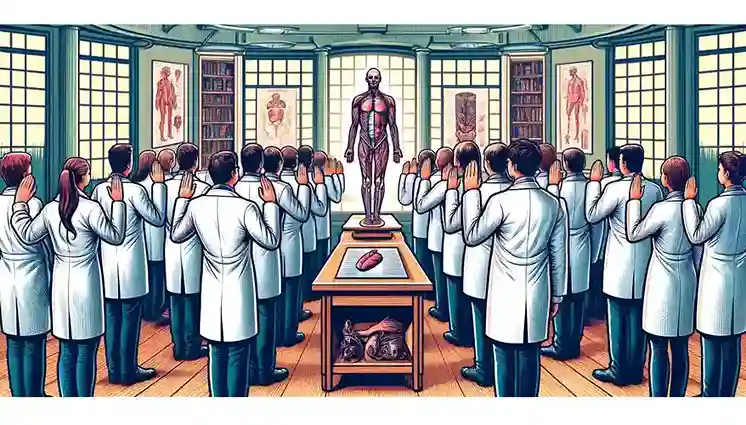
Always, be kind, be gentle, and be respectful. Don’t make unnecessary jokes. Don’t click unnecessary pictures.
Respect and the respect will come back to you.
Think about the sacrifice of the person. Think about how you are morally obliged to learn because somebody gave you their body to learn. Think about all this when you feel like giving up on dissection.
Some Other Tips
I’m sure you’ve gotten the knack for it. It is a process that asks you to step out of your comfort zone. There is no tip that can help you do that if you don’t want to. I can just help you out in becoming a little more comfortable, so that the process speeds up. Here’s some other tips that will help you get more comfortable with dissection:
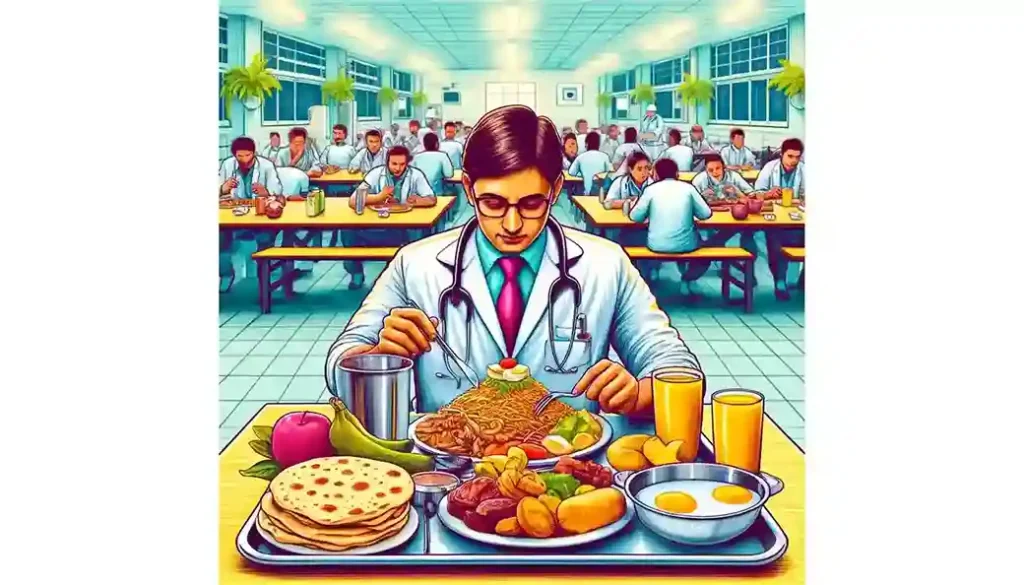
- Use PPE: Use personal protective equipment like masks and gloves to help prevent direct contact with formalin. I even had a set of goggles because my eyes used to water up very fast.
- Stay Hydrated and Eat Well: Don’t skip breakfast on dissection days. It is very easy to succumb to the sight of the cadavers and faint. At least 10 people from my batch have fainted over the course of the year.
- Eat More in Advanced: Initially, it’s going to be difficult to eat after dissection, you will surely skip meals. To make up for these, eat well in advance.
- Don’t Give Up: You will feel scared and at times disgusted too. The head and neck dissection is especially unsettling. Just try to keep observing if you feel like it is too difficult to dissect.
Conclusion
It will take some time, but it will be worth it. It is a little difficult to clear the University exam for Anatomy. It is a factual subject, it includes a lot of memorization. You will be able to remember it much much better if you see the structures for yourself.
Also, you will thank yourself later, when you get to surgery. If you have dissected enough, you will feel a lot of ease in working on alive humans.
Remember that everyone starts off feeling the same way. With persistence and respect, you’ll find yourself getting there. Keep pushing through, stay respectful, and remember why you chose this path. You’re training to save lives, and this is just one step in that journey
All the best, future doctor!
